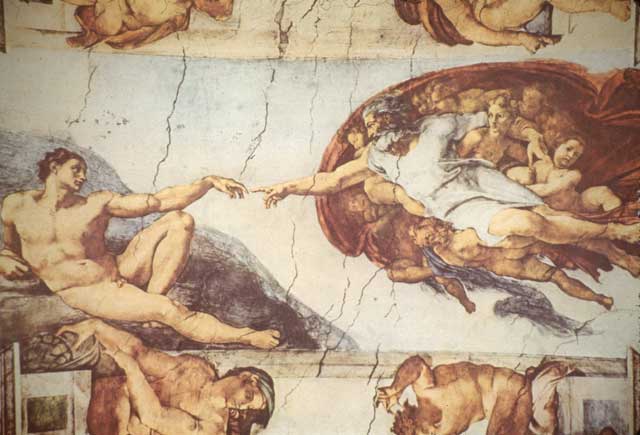Michelangelo's Finger, By Raymond Tallis

Pointing out, pointing the way, pointing at, and (usually worse) being pointed at are things we all understand. Their deeper meaning, though, may be another matter. This versatile gesture, says Raymond Tallis, is unique to humans. That tells us something about what makes humans special.
It has taken him a while to decide what that is. His little book is a descendant of one he first wrote 30 years ago, in hours off from his day job as a junior doctor, and never published. Now he returns to the pointy finger after much reflection, and a shelf full of other books on a dazzling range of topics. Like them, this one is concerned with the nature of human being, with what it feels like to be a person.
Tallis is unfashionably, and persuasively, exceptionalist about human capacities. Here he adds pointing to the list of things other animals do not do. They do not have a notion of self, or of other selves whose attention can be directed to some bit of a shared external world. A few chimps in captivity sometimes seem to point. But they are merely indicating dull proximity.
Toddlers on the verge of speech point continually, unless they are going to grow up to be autistic. The theory that the developmental differences which lead to severe autism result in such people lacking a theory of (other) minds seems to fit with their eschewing this simple communication aid.
And it fits with the view that the gesture is not so simple. The philosophical going gets quite tough here, with some heroic summarising. The essential point – and the "everyday transcendence" of Tallis's subtitle – is that pointing draws the attention because we recognise that others may know things about a world external to us which we do not. That, he reckons, is part of the foundation of culture, the fruit of our unique consciousness.
Tallis does not claim any one feature is "the" key to human evolution, or human difference. Rather, this extended digit is another way of highlighting the things about being us which are remarkable. The exploration is bracketed by discussion of two images. One is the picture referred to in the title, of God and his creation joined by the mutual pointing of their just separated fingertips. The other is the Millais's "Boyhood of Raleigh". Tallis first saw it on the wall of a 1950s schoolroom, and was transfixed by the two attentive gentlemen, and the red-pantalooned sailor pointing over the sea wall to the horizon and adventure.
Tallis suggests how the sailor points toward a future rather than any particular direction in space. That future is our history, in which Raleigh sails to the Americas, and helps bring back the gold which kick starts the capitalist economy, and the modern, globalised world. I don't necessarily see all this in the picture, part of the furniture of my childhood, too. I will not see it in quite the same way again, though. And that, of course, is the point.
Jon Turney's 'The Rough Guide to the Future' is published later this year
Join our commenting forum
Join thought-provoking conversations, follow other Independent readers and see their replies
Comments